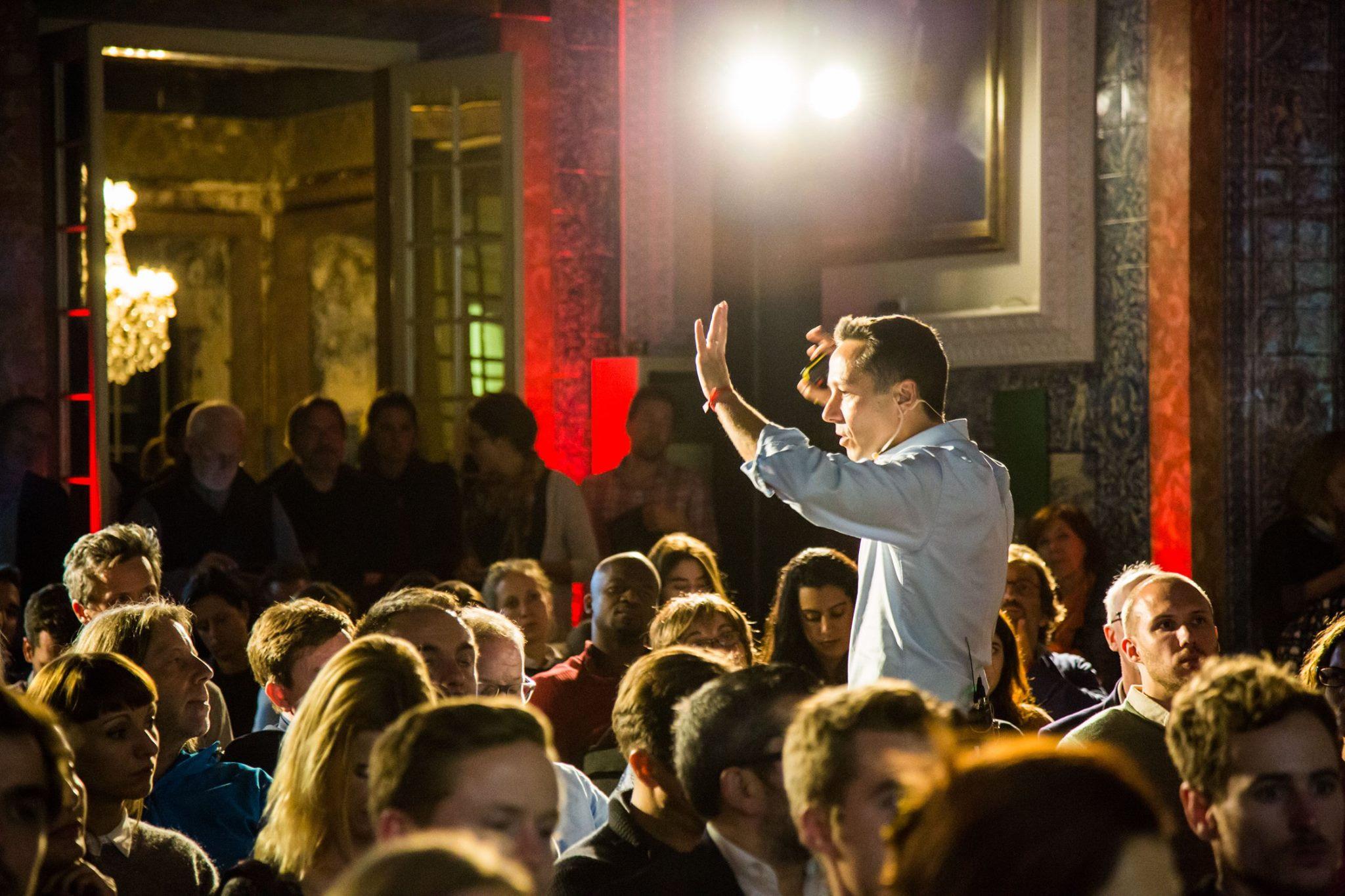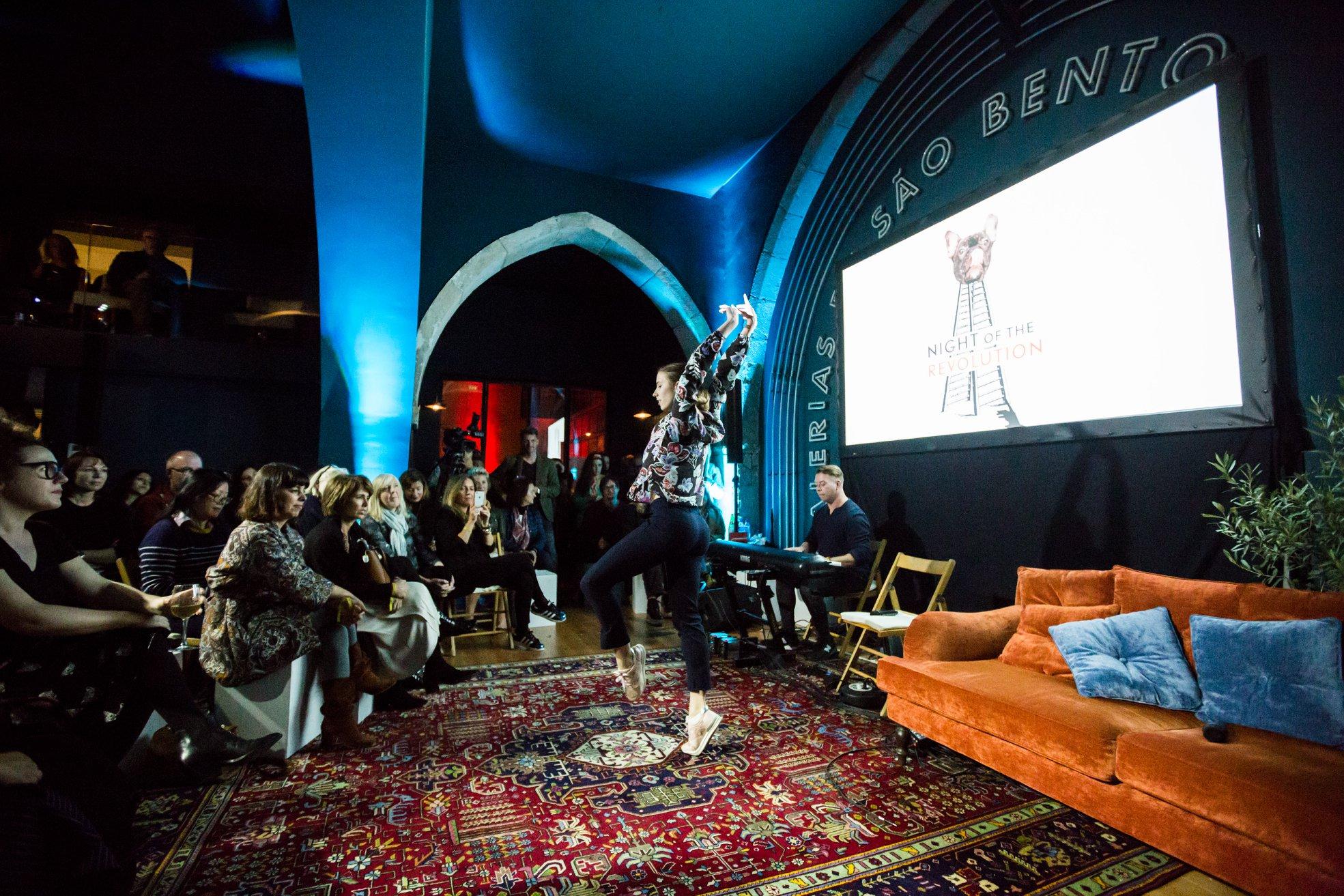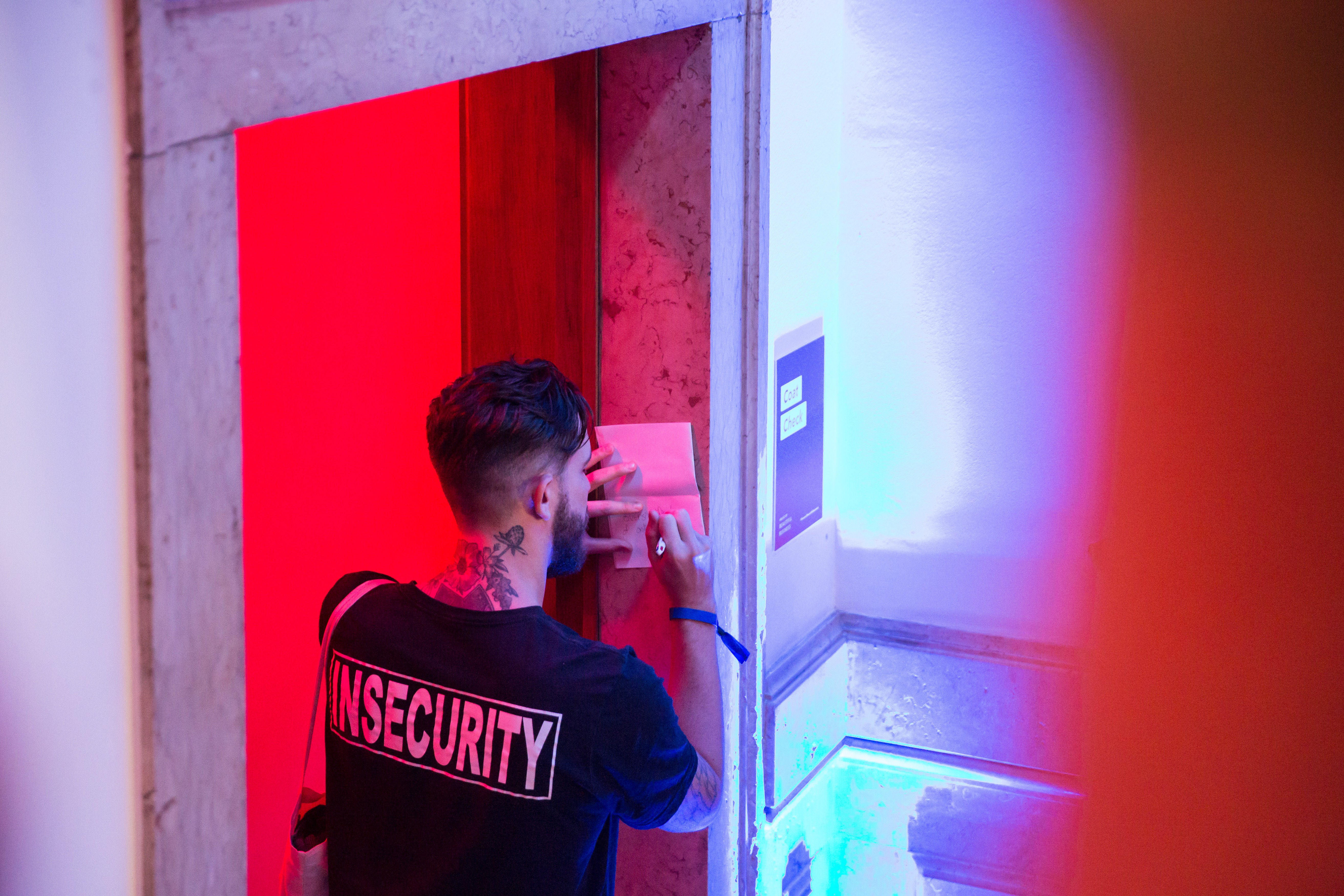Learning to Survive

Learning is the most important thing we do. It starts the day we are born—learning how to use our bodies, how to communicate our needs, how to form bonds with those who show us love—and it never stops. Or shouldn’t stop. Learning pushes us to grow, not only as children, but forever: acquiring new business skills, new ways of seeing, new ways of collaborating.
If we can do it constantly, through every phase of our careers, it won’t just make us better at our jobs, or happier, or even smarter. Learning might make us “future-proof” as well.
I’ve also noticed this: The one constant, from all of the learning that has stayed with me and that shapes my professional practice, is that I always remember who taught me something. I never recall the lesson without the teacher. Mostly it’s positive; a wisp of a memory that inspires me to write an out-of-the-blue email expressing gratitude. Not reliably, though; plenty of us teach by negative example, if not on the whole then in small but telling instances.
The second phenomenon I’ve noticed is that when someone tells me that they learned something from me, I rarely recall the occasion, or if I do, I remember having no intention, in that moment, of teaching anything to anybody.
One can draw any number of lessons from that.
Is the House a learning platform? Yes, we offer tons of information-rich content and, more recently, masterclasses, but we’ve steered away from creating a formal curriculum. Doing that would make it too inert, too stale to teach the qualities that we’ll need to thrive in the future. Yes, it’s a “VUCA world,” as they call it, but even that handy acronym seems too simplistic. What we’re aiming for is more complex and more subtle.
And yet we are a learning platform. We build community, and we hold space for experience, because it’s other people and what happens to us, both with and without them, that teaches us the most. Next month at Concrete Love, our signature gathering this year, we take them both head on, launching a four-week learning sprint to bridge the gap between big ideas and small actions, between where we’ve been and where we’re going, between what is possible and what is real.
—Megan Hustad
We learn to stay alive, not just feel alive
House Resident Gianpiero Petriglieri, associate professor of organizational behavior at INSEAD, considers learning his job. To learn and love is what keeps us human, as he put it at our 2019 gathering, reminding us that the problem is not the machines that come, but the machines we are at risk of becoming.
For this Beauty Shot, we reconnected with Gianpiero to talk about learning, expertise, and how caring fits in the picture.
What’s the benefit of learning?
Survival—and a modest degree of independence. From birth onwards, if you can’t learn how to deal with the natural world and the social world around you, then you are extremely vulnerable. We depend entirely on others for our existence. So we learn to stay alive, not just to feel alive. It’s a necessity, not a luxury.
What’s your view on “must-have” hard and soft skills?
I find the familiar distinction between “hard” and “soft” skills risible. The latter include empathy, interpersonal sensitivity, moral nuance—all skills that take a longer time, and much more work to learn, than, say, statistics. I guess the distinction endures to support a certain view of learning that sees the technical as hard, and the social as soft. A view that, once you scratch its surface, is rather weak. We are better off distinguishing between technical and humanistic education. We all need a foundation in both. Societies need them both to be cultivated, if those societies are to continue to exist and develop. Individuals might choose to devote themselves to one or the other, of course. But it’s more important for the balance to be between us, than within us. Even though it’s desirable, no doubt, for each of us to be conversant in both.

Photo by João Noguiera: Gianpiero Petriglieri at the House 2017 gathering
In a world of abundant knowledge, from Wikipedia to TikTok, how can you identify true expertise if you wanted to?
For codified expertise, like gastroenterology or Spanish property law, I might rely on qualifications, and the judgment of peers and clients. Things like track record and references. But I would not dismiss the value of platforms like Wikipedia or TikTok in giving me access to experts I would have been unable to reach through my personal network. I might find a surgeon’s view on aging knees compelling and useful on TikTok, but before I let them operate on me, I would probably still check that they have a degree, a track record, and perhaps speak to a few people who have worked with them. Would that make me old-fashioned?
I always tell people who are wondering whether to hire me not to just look up my written work, which is peer-reviewed, or videos. They should talk to people who have been in my workshops; they can usually say if my expertise is useful, and in which cases. Expertise is not a I/O thing but a long boundary. So the question is, do you have enough expertise to be trustworthy? That, to me, depends on whether you can justify your statements based on experience or experimentation, give them boundaries (“it works like this, in these conditions”), and whether you have made that expertise accessible so that it can be questioned or used by others. Experts accept and even welcome some degree of scrutiny and disconfirmation. They don’t expect you to trust or follow your faith.
What’s the one thing that we as professionals should learn now?
That our care is as important as our knowledge or ability. What and who we care for determines how we deploy knowledge and ability.
Whom do you learn from the most?
At this point, students. I have the fortune of working with a lot of very clever, ambitious, tormented, accomplished people. The kind of students who have little regard for professorial authority and want me to learn with them, from them, as I “teach.” I have access to experiences through them that I could never have access to directly, and I try my best to be surprised and inquisitive while I am teaching. I learn from colleagues, too. My job is learning, not writing or teaching—those are the products. I wouldn’t be in this job if I had not learned a lot over time from great teachers and mentors and friends, some of whom I encountered in formal education, others by chance.
One of the most useful things my father ever told me was,
“Never envy someone who’s better than you.
It will stop you looking at how they do it.” It has served me well. I think shame and envy are immense obstacles to learning, and once we can keep them in check, we learn everywhere!

Photo by João Noguiera: Irina Lerman at the House 2018 gathering
Eight principles of learning
A while back, House co-founder Tim Leberecht wrote a list of “essential learning principles” to protect us from whatever the future brings. We’ve learned a little more since then, and have new things to say about most of them. Here’s a quick rundown:
Make taking in new things a normal part of your routine. Instead of making learning something that you do occasionally, with a class or two per year, a conference, or a textbook brought to the beach, make learning something that you do continuously: Read The Economist at breakfast. Schedule lunch dates with the smartest people in your network every week. Instead of assuming you know something, imagine that you don’t. Known as shoshin in Zen Buddhism, a “beginner’s mind” goes hand in hand with teaching, but also encompasses openness, an eagerness to learn, and—most importantly—a freedom from preconceptions. So stream a documentary about a subject that doesn’t link directly to your area of expertise, check out a friend’s favorite podcast, read a novel from the “staff picks” shelf at the nearest bookstore.
Let them breathe. One of the best ways to incorporate new things we’ve learned is to give them time to fully shape our understanding. We used the word “fallow” in two Beauty Shots this summer, both times referring to the mind, and for good reason: The empirical evidence for the benefits of mental downtime is vast. “Rest is not idleness.” The better part of learning is not cramming information into some sort of filing cabinet in our heads, but giving our minds the time to wander and lose focus.
Play. While the importance of play for children is well-known, play is crucial for adults, too. It’s therapeutic, stress-relieving, and boosts innovation and engagement. And taking some time off to play can help those of us who have trouble “doing nothing” give our minds some of that essential rest.
Find awe. Highly emotional experiences are more memorable because our brains are wired to store information associated with an emotional charge. Awe is especially wonderful when combined with play and rest: whether you’re forest-bathing, stargazing, or simply going for an “awe walk,” the experience of awe makes us happier and more hopeful—both of which can help us learn.
Teach. It’s often said that the best way to learn something is to write a book about it. The act of taking something that you think you know and articulating it to others not only reinforces what you’ve learned, but exposes knowledge gaps that you may not have been aware of. It’s called the protégé effect, and it’s easy to do: All you need is a student, a mentee, or a willing ear to listen as you explain something that you’ve just learned. It also helps to keep it simple.
Be a generalist. This is linked to learning everywhere, to being open, and to making an effort to incorporate new information on a daily basis, whether it’s through the lunch dates mentioned above or the unexpected realizations that come from parts unknown. Paul Genberg credits being a generalist for putting him on the path to leading his own company. And did you know that the punch cards used in the first computers were inspired by a process for weaving silk?
Know yourself. We learn not only from our teachers, but also from ourselves: trying new things, making mistakes, trying again, figuring things out. The result is unavoidable self-transformation: New understandings change the structures of your mind, which, little by little, change what makes you you. Discovering your weak spots, blocks, and natural strengths—perhaps by doing something as simple as a personality assessment, or as long-term as therapy or meditation—can open up immense doors within yourself to something new.
Stop being so goal-oriented. Learning is not even a journey, but a dance.

Photo by João Noguiera: Resident at the House 2019 gathering
15 questions
Do you know?
Have you ever said (or thought), “I’m too old to ____”?
Were you right about that?
Who has taught you the most in the last two years?
Last ten?
Do they know you regard them in this way?
Would it benefit them to know?
Who or what has been an unexpected teacher?
Would you consider yourself an expert?
Are you striving to be seen as one?
Do you wish to unlearn something?
What have you learned from experience that studying could never have conveyed?
What do you know of sensuous knowledge?
What’s a film that made you see the world anew?
When did you last feel a sense of awe?
